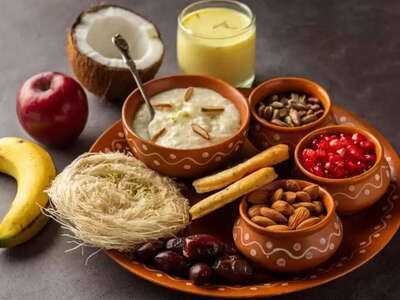 The Essence of Sargi on Karva Chauth
The Essence of Sargi on Karva Chauth
Married women across India observe the Karva Chauth fast, praying for their husbands' longevity. A significant aspect of this day involves the tradition of Sargi, which is given early in the morning after a bath. This custom has deep roots in history and is filled with emotional resonance, symbolizing the love and blessings from the mother-in-law as it marks the commencement of the fast.
How the Sargi Tradition Came to Be:
1. The Legend of Goddess Parvati:
According to myth, when Goddess Parvati first undertook the Karva Chauth fast, her mother-in-law was not present. In her absence, her mother, Maina Devi, provided her with Sargi, establishing the custom that a mother can also fulfill this role when a mother-in-law is unavailable.
2. The Mahabharata Connection:
During the Mahabharata era, Draupadi fasted for the well-being of the Pandavas, receiving Sargi from her mother-in-law, Kunti. This further solidified the association of Sargi with in-laws.
Optimal Timing for Sargi:
Sargi should be consumed during Brahma Muhurta, which is the period before dawn, typically between 4:00 and 5:30 AM. Eating Sargi after sunrise is deemed inappropriate for the fast.
Contents of Sargi:
The Sargi platter generally includes:
- Fruits: Apples, bananas, pomegranates, and papayas.
- Dry fruits: Almonds, cashews, and raisins.
- Sweets: Halwa, kheer, or vermicelli.
- Beverages: Coconut water or milk.
- Satvik items: Mathri and paratha (without spices).
What Should Not Be Included:
It is advisable to steer clear of oily, spicy, or heavy foods that could cause discomfort during the fast.
Sargi transcends mere sustenance; it embodies the blessings, love, and care from the mother-in-law, mentally and physically preparing the daughter-in-law for the day of fasting.
PC Social Media